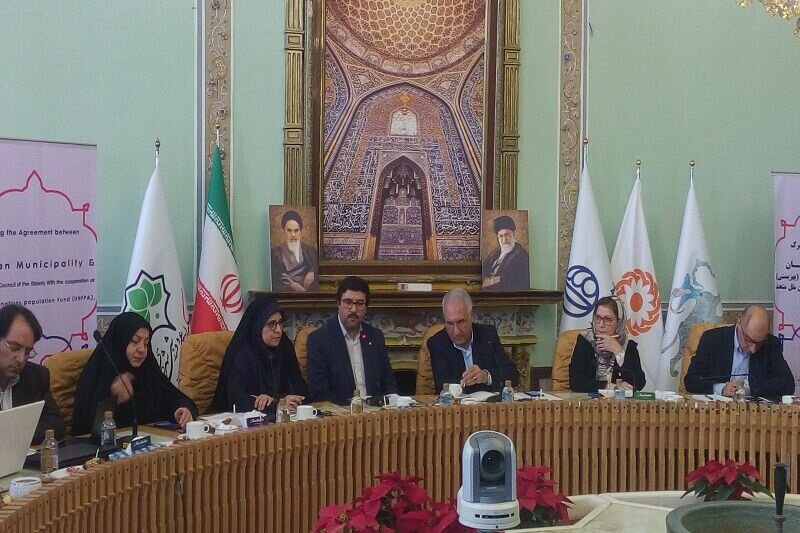UNFPA supports Isfahan to become age-friendly city

TEHRAN – The United Nations Population Fund (UNFPA) signed a memorandum of understanding with the Municipality of Isfahan on Tuesday to support Isfahan for becoming an age-friendly city to better meet the needs of its older residents.
On the sidelines of the signing ceremony, UNFPA representative in Iran, Leila Joudane, said that Isfahan officials are keen to transform the city into an age-friendly one, and our negotiations and cooperation began years ago, IRNA news agency reported.
She went on to add that if Isfahan becomes a city compatible with elderly needs, it will be open to all elderly tourist in the world.
To do so, cooperation of related organizations is required, she highlighted.
Age-friendly cities are not just convenient for this group of the society but must be suitable for all age groups to live a healthy life, said Joudane.
“The United Nations Population Fund is to create cities suitable for all age groups so that no one is excluded from a healthy living.”
She pointed to the rapid growth of the world's aging population and added that this rate is higher in Asia and among women than in other regions. At present, senior citizens account for about 10 percent of the Isfahan population which will reach up to 30 percent by 2050.
Studies show that if children live alongside the elderly, they will achieve more in the future and that age-friendly cities can create such an opportunity, she stated.
The UNFPA evaluates Iran's and Isfahan's programs in this regard, particularly in technical areas, and supports their activities, the report added.
Isfahan metropolitan area was selected last year at the UN Population Fund's recommendation as the pilot city to become age-friendly in Iran.
Iran will be home to the largest aging population in the region by the next three decades due to the large proportion of citizens aged over 35 years who are expected to be over 65 years old by 2050,
Alireza Raeisi, the deputy health minister, has said that Iran will be home to the largest aging population in the region by the next three decades due to the large proportion of citizens aged over 35 years who are expected to be over 65 years old by 2050.
According to United Nations estimates, the number of older persons (60+) will double from the current 600 million to 1.2 billion by 2025, and again, to 2 billion by 2050. The vast majority of older people live in their homes and communities, but in environments that have not been designed with their needs and capacities in mind.
FB/MG
